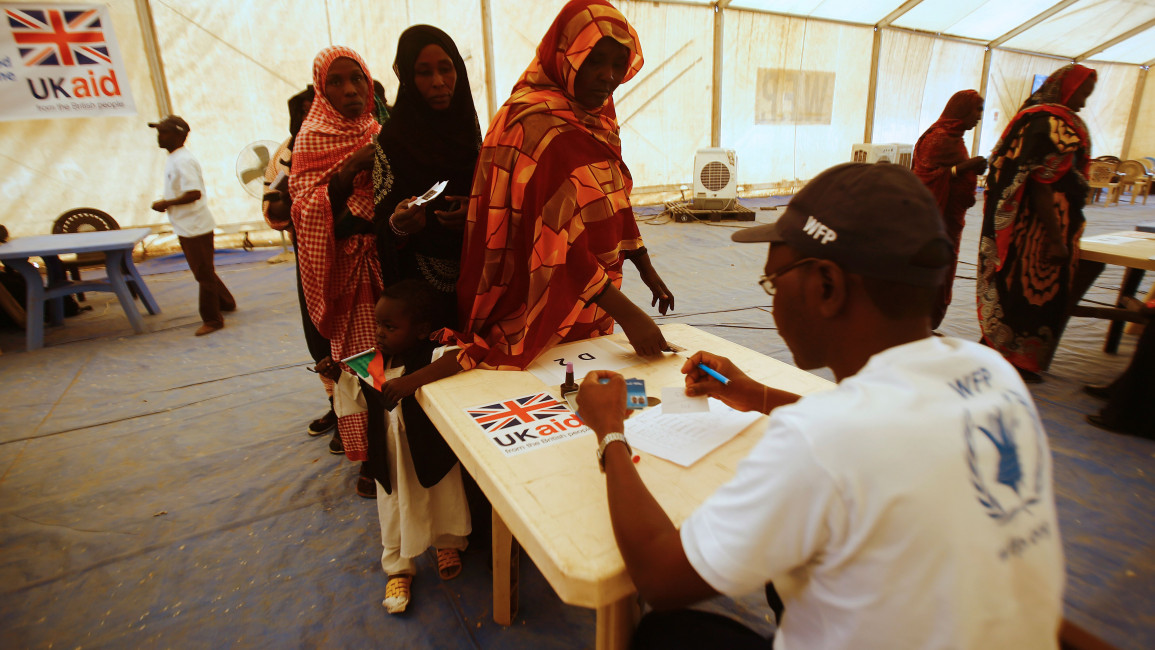Surprise vote could return UK aid to 0.7 percent aid spending by 2022
A return to 0.7 percent gross national income spending on UK aid could come as soon as next year as a surprise vote in Parliament takes place on Tuesday.
MPs have the choice to vote against the government and restore the overseas development assistance budget to previous levels by 2022 - reversing a £4 billion aid cut - or tie an increase in spending to certain fiscal criteria laid out by UK Chancellor of the Exchequer Rishi Sunak.
The threshold for restoring 0.7 spending - which is both enshrined in law and was part of the Conservatives' 2019 manifesto - is firstly, when the Office for Budget Responsibility's fiscal forecast says that the government is not borrowing for day-to-day spending and secondly, that underlying debt is falling.
In a ministerial statement published on Monday, Sunak presented the aid cuts as a move in favour of fiscal responsibility and "maintaining strong investment in domestic public services like the NHS, schools and police".
The Chancellor warned that if the House of Commons voted against the motion, there would be "likely consequences for the fiscal situation, including for taxation and current public spending plans".
However, while the Treasury speculated that the criteria could be met in a couple of years, some have raised concerns about the difficulty of fulfilling these fiscal conditions any time soon.
Former minister at the Foreign Commonwealth & Development Office (FCDO) Baroness Sugg wrote on Twitter that in the last 20 years, the UK has only met the Treasury's conditions once. She added: "So a vote for the motion means no 0.7% for the foreseeable future".
Ben Chu, economics editor at BBC Newsnight, wrote on Twitter: "what’s striking about the metrics the Treasury has chosen is that they’re themselves *affected* by Treasury decisions on tax and spend rather than being solely influenced by the wider economic environment".
The vote on 0.7% tomorrow is a hugely important one.
— Baroness Sugg (@liz_sugg) July 12, 2021
Little time to analyse the detail, but it seems in the last 20 yrs we would only have met the HMT’s conditions ONCE.
So a vote for the motion means no 0.7% for the foreseeable future. A vote against means a return next year. https://t.co/T9xQXfsEpF
This is the first time parliament is able to vote on the aid cuts and the government has clarified what they mean by increasing aid "when fiscal conditions allow", following the announcement to reduce development spending last November.
A Conservative rebellion led by former International Development Secretary Andrew Mitchell attempted to overturn the cuts last month and received support from over 30 Tory MPs, including former Prime Minister Theresa May.
In early July, when a possible parliamentary vote on aid cuts made UK headlines, Andrew Mitchell’s office told The New Arab that "as things stand we would win".
However, Prime Minister Boris Johnson and Sunak have spent the last 24 hours on the phones trying to persuade Tory MPs to support the motion, according to reports by Politico. Fourteen former Tory rebels have reverted their stance in favour of the government’s fiscal tests, reports revealed.
Jacob Rees-Mogg, leader of the House of Commons, announced the sudden debate on aid cuts on Monday and said: "It will be a yes or no answer. Does this House wish to see public finances kept under reasonable control? Does it recognise there are limits to what we can do?"
Charities and NGOs across the UK have slammed the cuts as devastating to vulnerable communities across the world, with particularly severe impacts on women and girls and communities in Syria and Yemen.
South Sudan, for example, has been subjected to a 59 percent aid cut resulting in the termination of peacebuilding projects. This is happening at a time when over 8 million of its population need humanitarian assistance, including two in every three South Sudanese children.



